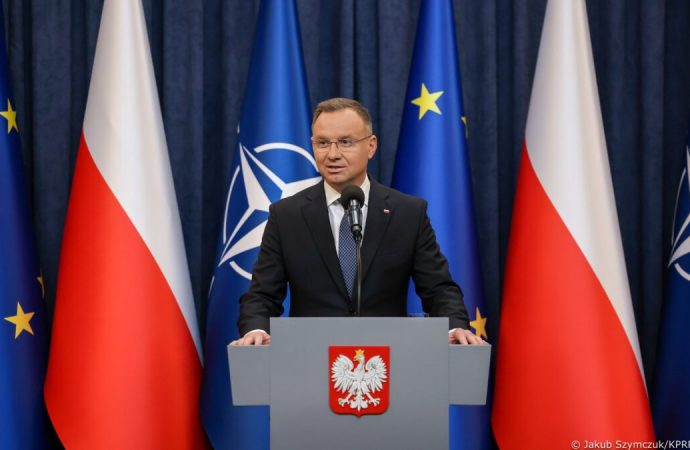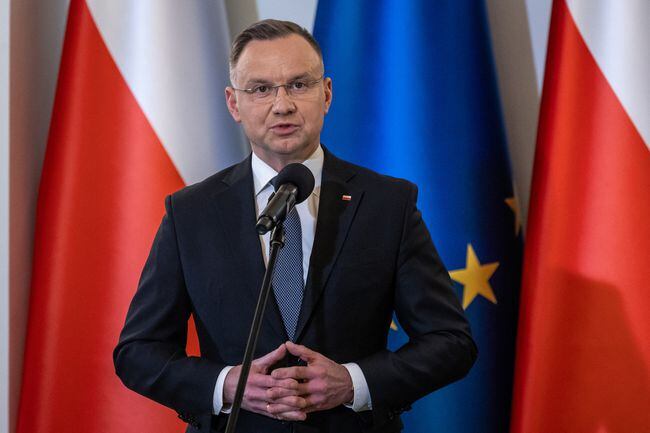EU’s End Run: Sidestepping Polish President’s Veto to Unlock Billions in Funding In a bold political maneuver, the European Union is taking steps to bypass the veto imposed by the Polish president, paving the way to release billions in crucial funding. This article dissects the intricacies of this strategic move, assesses potential consequences, and explores
EU’s End Run: Sidestepping Polish President’s Veto to Unlock Billions in Funding
In a bold political maneuver, the European Union is taking steps to bypass the veto imposed by the Polish president, paving the way to release billions in crucial funding. This article dissects the intricacies of this strategic move, assesses potential consequences, and explores the broader implications for EU-Poland relations. Insights are drawn from Dr. Helena Policy, EU funding release a distinguished Political Analyst and Professor of EU Studies.
Navigating the Veto: EU’s Unconventional Approach
The European Union’s decision to sidestep the Polish president’s veto is a noteworthy development in the ongoing saga of funding allocations. Dr. Helena Policy explains, “This move underscores the EU’s commitment to its policies and financial frameworks, even in the face of political resistance. It sets a precedent for how the union addresses internal dissent on critical matters.”
Intricacies of the Political Maneuver
- Enhanced Cooperation Mechanism: The EU is leveraging the Enhanced Cooperation Mechanism, allowing a subset of member states to move forward with initiatives, even if unanimity is not achieved.
- Focus on Core Objectives: The EU is emphasizing that the release of funding aligns with core objectives and obligations, framing it as a measure necessary for the union’s collective progress.
- Legal Safeguards: While bypassing the veto, the EU is ensuring that the move adheres to existing legal frameworks, avoiding a breach of procedural norms.
Potential Consequences and EU-Poland Relations

This image is taken from google,com
- Political Tensions: The EU’s end run may escalate political tensions between the union and Poland, potentially impacting collaborative efforts on various fronts.
- Legal Challenges: The move could lead to legal challenges, with Poland contesting the EU’s authority to proceed without unanimous agreement.
- Impact on Funding Allocation: The funding release, once implemented, could influence the allocation of resources and projects in Poland, potentially causing economic and social ripple effects.
Comparative Table: Funding Allocation Disputes in the EU
To provide a quick overview, here’s a comparative table highlighting instances of funding allocation disputes within the European Union:
| Country | Issue | Resolution Mechanism |
|---|---|---|
| Poland | Veto on funding release | Enhanced Cooperation Mechanism |
| Hungary | Dispute over rule-of-law conditionality | Ongoing negotiations and legal scrutiny |
| Italy | Budgetary concerns leading to delayed funds release | Bilateral discussions and financial audits |
Expert Opinion: Dr. Helena Policy’s Perspective
Dr. Helena Policy weighs in on the situation, stating, “The EU’s decision reflects a delicate balance between upholding collective goals and respecting member states’ concerns. It’s a calculated move with implications not just for funding but for the broader cohesion of the European Union.”
Conclusion: The Uncharted Territory of EU Dynamics
As the European Union charts this uncharted territory of sidestepping a member state’s veto, the dynamics of internal relations and decision-making evolve. The consequences of this move are multifaceted, influencing both political and financial aspects, and will undoubtedly shape future interactions within the EU. In the intricate dance of EU politics, each move, especially one of this nature, has reverberations that extend beyond immediate funding concerns.

















Leave a Comment
Your email address will not be published. Required fields are marked with *